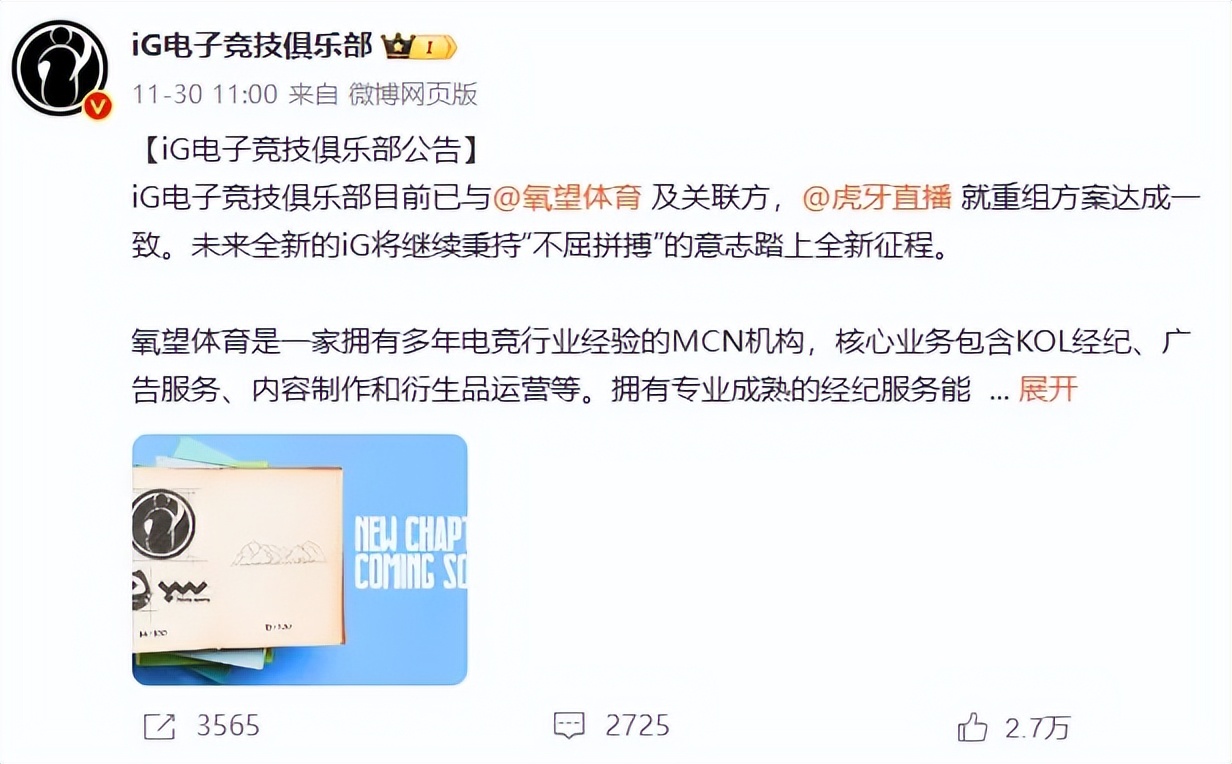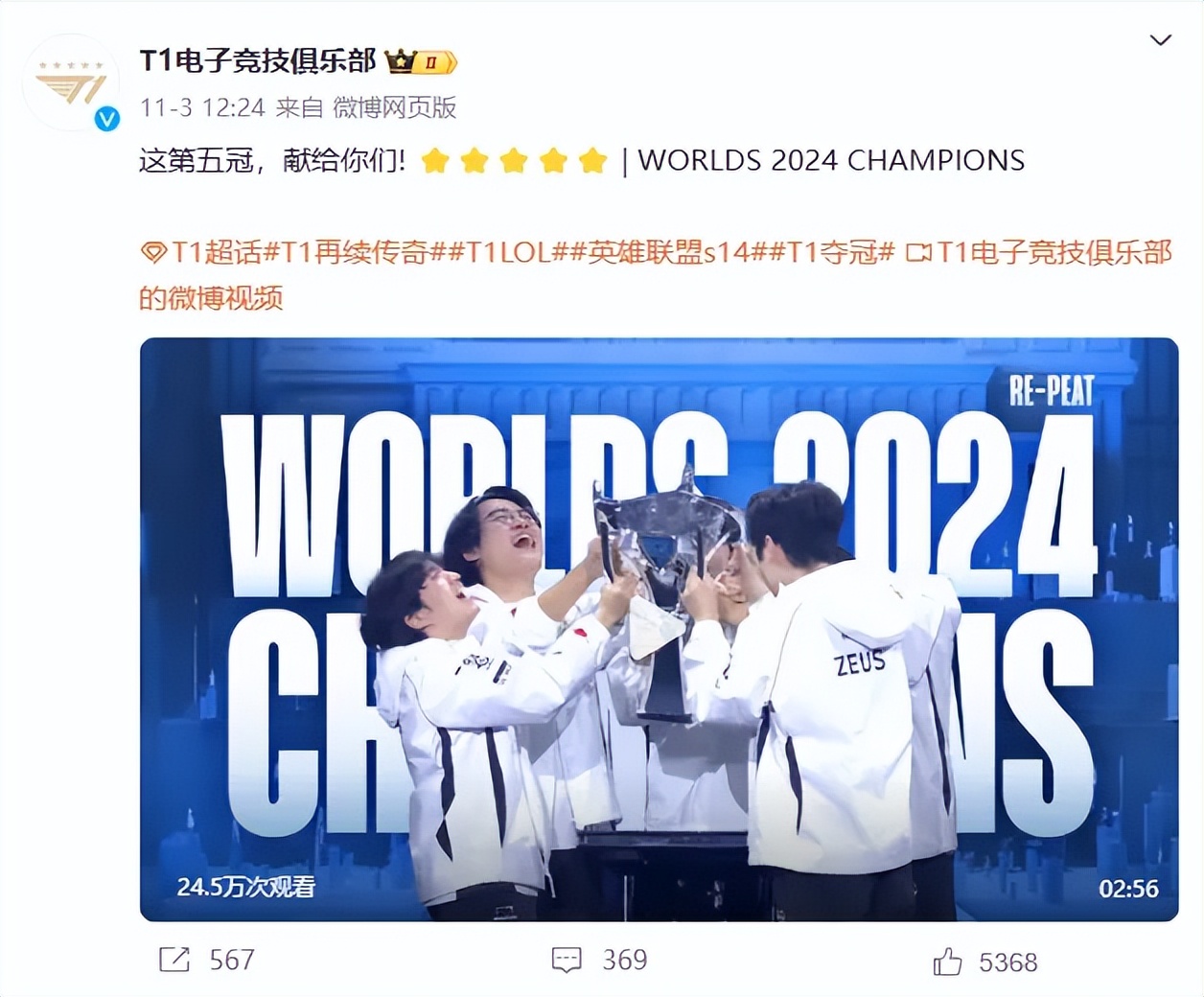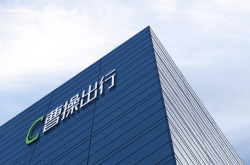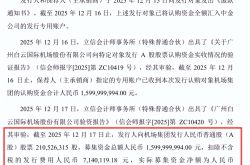Esports Independence: A False Proposition of Tencent
![]() 12/10 2024
12/10 2024
![]() 704
704
On November 30, iG Esports Club officially announced that it had reached a consensus with Oxygen Sports and Huya Live on a restructuring plan. Oxygen Sports also stated that it would reach a strategic investment cooperation with iG and Huya Live.

Screenshot from Weibo @iG Esports Club
This change in ownership for iG signifies the official exit of founder Wang Sicong from the esports sector.
Recently, there have been undercurrents of capital movements within the esports scene. On November 18, RA Esports Club issued an official announcement stating that due to strategic adjustments, the club had reached a friendly agreement with the LPL Alliance to officially withdraw from the LPL Alliance and cease participation in related events. Currently, the Alliance is assisting the team in properly placing players and completing buyback matters.
This is the first team to officially withdraw from its seat since the LPL officially launched its alliance system in 2017.
In reality, whether it's the change in ownership of iG or RA's direct withdrawal, both reflect the stage where esports independence and sports integration have become false propositions, and the decline in LPL's popularity seems irreversible.
01
LPL Troubles Continue
Signs of LPL's decline were evident as early as 2022. That year's World Championships were dominated by the LCK throughout the year, although JDG and BLG's strong performance at the 2023 Mid-Season Invitational provided a temporary boost to LPL's popularity.
However, this respite was short-lived. During the subsequent Hangzhou Asian Games and 2023 World Championships, not only was the national team directly defeated by South Korea, but on the club level, Faker achieved the feat of winning four championships, defeating three LPL teams in the round of 16, semifinals, and finals.
Under the grand narrative of "esports resisting South Korea," such results directly discouraged many viewers. The "powerhouse clash" between BLG and TES in the LPL's S14 Spring Season opener failed to surpass one million views in a week.
Therefore, when LPL needed a morale boost the most, Faker delivered a "godly assist" by leading T1 to a 3:2 victory over BLG's "all-Chinese" lineup in this year's World Championship finals.

Screenshot from Weibo @T1 Esports Club
"Traffic is the foundation of any sports event. Without traffic and attention, it's difficult to talk about commercialization. LPL will have a tough year next year." A former live streaming platform executive candidly told Yuanmeihui.
Since the end of the World Championships, rumors of "LPL teams withdrawing from the alliance" have been rampant. According to insiders, in addition to RA, two or three other teams are discussing withdrawal with the alliance.
In fact, the LPL has already experienced "overload." Before RA's withdrawal, the entire league consisted of 17 teams, far exceeding the 10 teams in the neighboring Korean LCK region, with a polarizing trend where a handful of star-studded teams competed for world championship spots, while a larger number of underperforming teams maintained their league positions at low cost, awaiting investors interested in entering esports to sell their seats and exit.
However, the objective fact of going three years without a championship directly disrupted the plans of underperforming teams to cash out and leave. If BLG had won the championship with an "all-Chinese" lineup, it would have likely driven a wave of esports traffic, potentially attracting buyers for RA's seat.
"Current capital is not as blind as it was a few years ago and has a systematic understanding of the esports industry," said the former live streaming platform executive. The esports industry has long passed the wilderness era of relying on PPTs for funding. Capital has formed a basic judgment that esports has high traffic but poor conversion rates. Unless new variables emerge, it will be difficult to convince capital to decisively enter the market.
Not only Chinese esports capital but also esports capital in many regions, including North America and South Korea, has shown signs of withdrawal. On February 16, the North American esports club FaZe Clan filed a document with the U.S. Securities and Exchange Commission outlining a "restructuring plan." According to the company's spokesman, FaZe plans to lay off 20% of its staff.
Blizzard's financial report released on July 19, 2023, revealed that the company would modify its agreements with the 19 clubs in the Overwatch League (OWL), providing each with a $6 million severance payment at the end of the season, totaling $114 million.
Even South Korea, which has long dominated League of Legends esports, is shrouded in the gloom of a "lack of funds." Earlier this year, the ten teams in the LCK issued a "Joint Statement on Achieving Sustainable Development of the LCK League," collectively complaining about insufficient official profit distribution leading to financial losses for all teams and demanding reforms due to concerns about an unreasonable league structure.
02
Very Calm About the World Championships
Remember in 2019 when it was announced that the following year's World Championships would be held in China? Not only did capital from all directions flock in, but even the Shanghai Municipal Government personally endorsed esports.
At the 2019 Paris World Championships, Ms. Zong Ming, then-deputy mayor of Shanghai, announced the news that the 2020 World Championships would be held in Shanghai and released a promotional video for the 2020 League of Legends World Championships landing in Shanghai, officially announcing that the World Championships would once again meet China.
At that time, many cities were striving to explore new opportunities in the esports industry. In 2017, Shanghai proposed the slogan of building a "Global Esports City." The "Global Famous Esports City Industrial Development Index Ranking Report" shows that Shanghai has ranked among the top three on this list for three consecutive years. In 2018, Beijing issued the "Opinions on Promoting the Innovative Development of the Cultural and Creative Industry," proposing to support the holding of high-quality, international esports competitions and promote the healthy development of the online game industry, including esports live streaming. Wuhan, Xi'an, Shenzhen, and other places have also issued various policies to support the esports industry.
At that time, neither capital nor relevant practitioners could have imagined that the announcement of the 2025 World Championships venue would be at the launch event for a certain OPPO mobile phone. At the event, OPPO announced the renewal of its partnership with League of Legends esports through a new multi-year agreement.
After all, League of Legends and Riot Games have always been known for their strength and rarely compromise with sponsors. During the 2017 World Championships, there were multiple confrontations with Mercedes-Benz, the chief partner for the Chinese region of the World Championships, necessitating intermediary coordination from suppliers for many offline events.
"Both sides (Riot Games and Mercedes-Benz) think they're the boss and are self-centered, so we veterans of esports have to mediate, or they'll keep pulling at each other endlessly," said a witness at the time to Yuanmeihui.
However, times have changed, and the capital story of esports has long lost its magic, with its money-making ability greatly diminished. In 2021, the LPL Professional League had as many as 15 sponsors, with detailed distinctions made: Chief Partner, Strategic Partner, Official Partner, and Special Partner.
Fast forward to 2024, LPL's partners have dwindled to just three: Durex, JD.com, and Bright Dairy. International brands such as Benz, Nike, and KFC have all disappeared.
"Even if there's a world championship in China this year, we won't participate in the relevant bidding," admitted a former LPL sponsor.
For sponsors, most in this industry are "free riders," making marketing efforts difficult. A report released by NewZoo pointed out that although 261 million people worldwide watch esports competitions at least once a month, each fan only generates $5.30 in revenue per year.
Moreover, Riot Games is strategically abandoning League of Legends to place more emphasis on Valorant. According to relevant financial reports, in the second quarter of this year, Tencent's game revenue in the local market recovered, with quarterly revenue reaching 34.6 billion yuan, a year-on-year increase of 9%, mainly due to the growth in revenue from Valorant and the successful launch of Dungeon Fighter Online: Origins.
On October 16, Marc Merrill, co-founder of Riot Games, announced that the company would lay off employees, primarily targeting the League of Legends team.
For Riot Games, making choices about the construction of the esports ecosystem is necessary.
03
Weakening the Esports Proposition
Within Tencent, the concept of esports is also being gradually weakened.
The most direct manifestation of this is in the financial reports. The concept of esports first officially appeared in Tencent's financial report in the second quarter of 2018, mentioning that RNG's victory in the MSI Championship increased the daily active users of League of Legends in China.
Subsequently, in the annual financial report of that year, Tencent gave more attention to esports.
The financial report stated: "Honor of Kings" held its large-scale esports event, the Autumn Season KPL Finals, in December 2018, attracting over 75 million users to watch the live broadcast. "League of Legends" launched its first Hero Season Pass, increasing the average usage time for users, and active users increased month-on-month after the Chinese mainland team won the World Championship in November 2018.
The team that won the World Championship was iG.
Since then, as the esports industry flourished, esports has repeatedly appeared in the gaming section of Tencent's financial reports.
For esports practitioners at the time, they were not satisfied with their status as an adjunct to gaming and began exploring the independent industrial value of esports.
In January 2019, Tencent and Riot Games jointly established Tencent Esports, aiming to explore the independence of the esports industry separate from gaming itself. In terms of business planning, Tencent Esports publicly stated its goal of making the LPL the world's number one league and a popular lifestyle. It also announced three goals within three years: achieving a total league revenue of 1 billion yuan, a league viewing duration of 4 billion hours, and making the LPL one of China's most valuable sports IPs.
"When can esports get its own page in the company (Tencent) financial report? That's when we'll consider ourselves a complete success," a Tencent Esports employee candidly said at the official announcement of the company's establishment.
At the event celebrating Tencent Esports' second anniversary in January 2021, Tencent Esports Co-CEO Jin Yibo stated that the company had achieved its main goals within three years and announced the core development goals for the next stage: promoting multi-engine development from the perspectives of multiple projects, modes, and internationalization, thereby transforming Tencent Esports into "a competitive league operating multiple esports products" and a "sports event operator with international influence and diversified commercial revenue."
However, this good fortune did not last long. After entering 2022, the frequency of esports appearing in Tencent's financial reports began to decline, and by 2024, it was rarely mentioned.
From an overall data perspective, the weight of esports in Tencent's financial reports also aligns with the trajectory of industrial development. Since 2018, the total revenue of China's esports industry has been growing rapidly, with a staggering growth rate of 43.79% in 2020. Although the growth rate slowed down in 2021, it still reached 6.03%. However, in 2022, there was a negative growth for the first time, with total revenue of 144.503 billion yuan, a year-on-year decrease of 14.01%.
Judging from Tencent and Riot Games' current actions, esports is unlikely to get its "own page." On March 15 of this year, Riot Games published an article by CEO John Needham announcing further adjustments to its esports business based on last year's efforts, primarily focusing on revenue distribution.
According to John Needham, Riot Games will increase content for League of Legends esports game assets and shift the primary revenue source for the revenue distribution mechanism of the three major regions from league sponsorship sharing to game asset sales sharing, thereby increasing the income of participating teams in the three major regions.
This reform deepens the strategy of tightly binding gaming and esports, further weakening the concept of esports' independent industrial value.
In November, news spread within Tencent that Zhang Yijia, General Manager of the Esports Development Center at Tencent Interactive Entertainment's TiMi L1 Studio, had resigned. As a key figure leading the independent operation of esports within Tencent, Zhang Yijia's resignation may temporarily slow down related operations for esports independence.
In 2016, the Tencent Interactive Entertainment Mobile Esports Business Department was established, with Zhang Yijia as the main founder, responsible for the layout, production, and operation of Tencent's top mobile esports events, including the Honor of Kings Professional League (KPL) and the QQ Speed Mobile S League.
Judging from various indications, RA's withdrawal is just the beginning of a domino effect in esports.
Some images are referenced from the internet. Please inform us for removal if there is any infringement.






